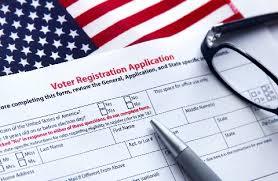On reforms – Zeynep Tufekci in NYT:
‘Since 2008, partisan distrust of presidential election results has been substantial. In 2016, only 43 percent of Democrats believed that the election was free and fair; now, only 30 percent of Republicans do. Each party’s supporters are more likely to believe that the vote was free and fair if they won, and those on the losing side are becoming more suspicious of the results. With a defeated president trying for weeks to overturn an election he has falsely called fraudulent, our partisan breach will be hard to repair.
But electoral reform can still provide a better foundation of trust. Two decades since the 2000 Florida recount debacle revealed the shoddiness of how America votes, we should be able to provide a straightforward, sensible answer to anyone who asks, “How do you know the results are correct?”’
(…)
‘Easier registration, with standardized voter databases, would keep voters from being incorrectly purged from the rolls — which can disenfranchise them — or being left on them when they move — which creates mistrust and suspicions of fraud.
The easiest method is called automatic voter registration: If an eligible citizen has an interaction with a government agency, like the motor vehicle department, she’s registered unless she declines, and the records are sent digitally to the registrar, which means cleaner, more up-to-date voter rolls. Nineteen states and the District of Columbia are already running such a system. This should be expanded nationwide.’
(…)
‘Voting rights groups have long asserted that purges of voter rolls— often disproportionately affecting minorities or students, two groups who tend to vote Democratic — are a form of voter suppression. The Republican answer has been that they are only for maintenance, to ensure ineligible voters don’t remain on the books. If that’s the concern, the fastest way to fix all this would be to adopt these standards for registration and data exchange.
Republican officials across the country have also tried to make voting harder — especially in blue districts, particularly to obstruct Black voters. That strategy is not only deeply wrong, it’s backfiring. Voter turnout was higher this year for both Republicans and Democrats.
Still, we should not continue to rely on the tenacity of voters to overcome these obstacles. Research consistently finds that Black and Latino voters wait much longer in line to vote than their white counterparts, and this is simply unacceptable. There should be a sufficient number of voting booths everywhere so nobody has to wait in line for too long, and this should be a funded federal mandate.’
(…)
‘The number of people who are estimated to vote with no paper trail is down to 5 percent of the electorate — still high, but a number that’s been steadily going down (it was 25 percent in 2016). Optical scanners, which use paper ballots, provide everything we need: easy-to-mark ballots that can be processed by machines for speed or for checking, and easy to audit and do recounts — people can look at them if necessary after the election.
These systems are already nearly universal, demonstrating that progress is possible. They should become the national standard as we upgrade the remaining paper-based ballot-marking devices and replace all electronic-only devices.
Even with a system that’s expected to work well, we need to know that it has worked well. Like any other equipment, optical-scan counting machines can fail, and human error can add to this. That’s why we should have risk-limiting audits after each election after the counting is complete but before the result is certified.’
Read the article here.
Civil registration in the US is nothing like it is in Germany or France, hence the proposal for (more) automatic voter registration.
I’m all in favor of it, but the distrust in election results, the distrust in experts won’t fade away anytime soon.
The vulgar remainder of critical thinking: smug distrust.
